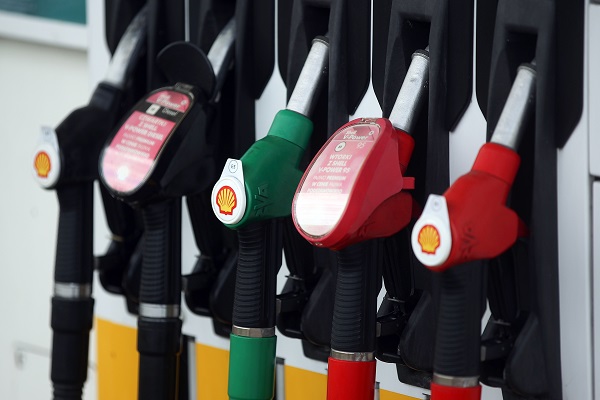ii view: Shell makes even more money in Q1 than City predicted
Executing $13.2 billion of share buybacks, growing profits and paying an attractive dividend. Buy, sell, or hold?
2nd May 2024 11:31
by Keith Bowman from interactive investor

First-quarter results to 31 March
- Adjusted profit up 6% to $7.7 billion from the previous quarter
- Quarterly share buyback unchanged at $3.5 billion
- First-quarter dividend of 34.4 US cents, unchanged from Q4
Chief Executive Wael Sawan said:
"Shell delivered another quarter of strong operational and financial performance, demonstrating our continued focus on delivering more value with less emissions.”
Invest with ii: Open a Stocks & Shares ISA | Top ISA Funds | ISA Offers & Cashback
ii round-up:
Shell (LSE:SHEL)l today detailed first-quarter profit that beat City forecasts, with the oil major maintaining its share buyback programme at $3.5 billion for the current second quarter.
Adjusted profit for the three months to late March of $7.7 billion was up from $7.3 billion in the prior fourth quarter and exceeded analyst estimates of $6.5 billion, given better-than-expected performances for both integrated gas and downstream refining operations.
Shares in the FTSE 100 giant rose 1% in UK trading having come into this latest news up by almost a tenth year-to-date. That’s similar to rivals BP (LSE:BP.) and TotalEnergies SE (EURONEXT:TTE) and compares to a 5.5% improvement for the FTSE 100 index so far in 2024.
Increased geopolitical tensions combined with low oil stocks and production cuts by Saudi Arabia and other OPEC+ members have all helped push the price of oil up around a tenth year-to-date.
A dividend of 34.4 US cents per share is unchanged from the previous fourth quarter, although was up from the 28.75 US cents declared for the first quarter of 2023.
Adjusted cashflow for the quarter of $15.5 billion comfortably surpassed City estimates of $13.7 billion, helping group net debt fall to $40.5 billion from $44.2 billion a year ago.
Shell reiterated its plans for full-year 2024 capital expenditure of $22-$25 billion, with oil and gas production during the current second quarter expected to fall given planned maintenance.
Second-quarter results are scheduled for 1 August.
ii view:
Started in 1907, the energy giant changed its name from Royal Dutch Shell and moved its headquarters to the UK in 2022. Employing more than 103,000 people across 70 countries, its strategy includes further simplifying the company and sharpening performance. Like rivals and under government climate change policy, it has also been investing in building and expanding its renewables production such as wind power and energy solutions in the form of hydrogen and biofuels.
For investors, an uncertain economic outlook, particularly in China, continues to offer uncertainty regarding expected future energy demand. Costs for businesses generally remain elevated. Windfall taxes introduced following higher energy prices and Russia’s invasion of Ukraine persist, while Shell’s own dialling back of investments in climate change friendly investments in 2023 does not sit comfortably with all.
- Lloyds Bank and Aviva part of FTSE 100’s £9bn dividend windfall
- Making the most of your tax breaks in 2024
- A big stock that will break the ceiling rather than the floor
More favourably, a diversity of operations across oil, gas, chemicals, and alternatives regularly allows one area of strength to counter another of weakness. Geopolitical factors such as a possible widening of the war in the Middle East offer potential support to the price of oil, while net debt heightened during the pandemic continues to be reduced.
For now, and despite ongoing risks and strong performance in recent months, a focus on shareholder returns including a forecast dividend yield in the region of 4%, continue to underpin Shell’s popularity among investors.
Positives:
- Diversity of operations
- Reducing net debt
Negatives:
- Uncertain economic outlook
- The weather can raise operational challenges
The average rating of stock market analysts:
Buy
These articles are provided for information purposes only. Occasionally, an opinion about whether to buy or sell a specific investment may be provided by third parties. The content is not intended to be a personal recommendation to buy or sell any financial instrument or product, or to adopt any investment strategy as it is not provided based on an assessment of your investing knowledge and experience, your financial situation or your investment objectives. The value of your investments, and the income derived from them, may go down as well as up. You may not get back all the money that you invest. The investments referred to in this article may not be suitable for all investors, and if in doubt, an investor should seek advice from a qualified investment adviser.
Full performance can be found on the company or index summary page on the interactive investor website. Simply click on the company's or index name highlighted in the article.